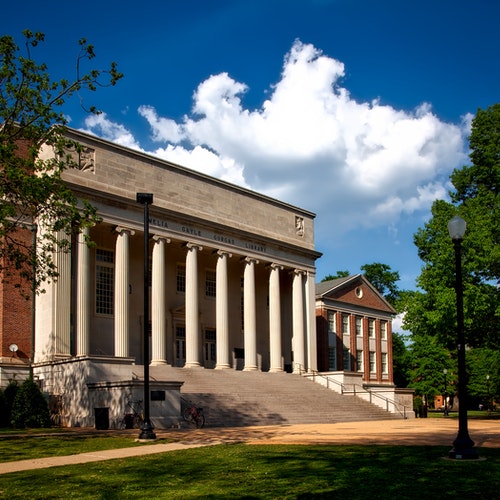Finding the perfect college may be thrilling and frightening, but you’re picking where to study and live for up to four years of your life. There’s a good chance you’re feeling tense, but try not to sweat it. Find a school that satisfies all of your expectations and requirements.
There are some factors that need to be considered before choosing a college.
Accreditation
Make sure the institution you’re considering is accredited before you spend any time looking into it. In other words, it indicates that a third-party agency has verified that the school’s curriculum satisfies the minimum requirements for a four-year college degree.
These details are frequently available on the school’s website, most often in the “About” or “Admissions” sections. Call or contact admissions if you can’t locate what you’re looking for.
Available Academic Majors
Do you already have a specific course of study in mind? Fantastic! Find out whether the universities on your shortlist offer the precise major you’re interested in studying.
Are you unsure about your educational goals? If so, that’s okay, as well! A broad range of majors at the institutions you’re considering will allow you to discover and narrow down your perfect career path without switching schools.
Consider that many students change their majors (often) while in college. Even if you have a particular course of study in mind, your plans may alter.
Additionally, if you plan on attending graduate school after completing your undergraduate education, you need to consider available graduate school programs. For example, if you know you are interested in studying business, be sure that the institution you choose offers master’s degrees in business.
However, don’t feel obligated to pursue a graduate school education at the same institution you received your undergraduate education; you can attend a different school for graduate school.
Geographical Area
Nearness to the family is an essential consideration for college students. Do you want it to be quieter in a vast metropolis or country? Is a party campus a pleasant aspect of the college experience or a distraction? What about the weather and culture of the area?
Is it possible for you to go outside your state, particularly to a more expensive major city? As you’ll explore in further depth below, the expense of attending college outside of your home to the best state universities will be higher.
Your college experience may be significantly influenced by where you live. Even if you enjoy the school, the following four years might be difficult if you don’t like where it’s located. When looking at schools in one place, make sure you like the area. The last time you were there, you may want to plan a return visit.
Affordability
Another crucial consideration is the price. Consider the institution’s cost, the financial assistance package, and the amount of student debt that will be accrued in the future before making your decision. Don’t allow the higher cost of private universities scare you away from looking into a private school that interests you.
Inquire about financial assistance programs and possible scholarships at the institution you are interested in.
Prospective students are provided with a wealth of information on applying for financial assistance, the many kinds of scholarships and grants available, and other resources and contact information by the financial aid department.
Perspective
When deciding on a college, evaluate how you felt throughout your time at the institution. Your college should be a place where you can thrive intellectually and personally.
By providing you with the tools you’ll need to achieve your long-term objectives, the ideal institution can create an atmosphere where you’ll be challenged and encouraged to succeed.
Opportunities for Internships
Gaining experience in a sector that interests you is beneficial for future employment; it is also an excellent method to figure out your hobbies and broaden your professional network. Look at the institution’s options for getting internships, practical experience, research, and studying in other countries.
Career Services
Generally, most students see college as an opportunity to earn a rewarding profession that contributes to society and avoid returning to their parent’s basements. Find out whether a college offers comprehensive career services to help you get a new job or get ready for graduate school. These include aid in identifying a “best fit” major, co-op and internship placement services, preparation for the job hunt, and assistance in getting a job on-campus, among other options.
Wrap-Up
Choosing a college is a daunting task that requires careful consideration of several variables. As a result, many students don’t give the procedure enough time or attention. Consider all of these factors and a few more, and you should be okay. Good luck!












